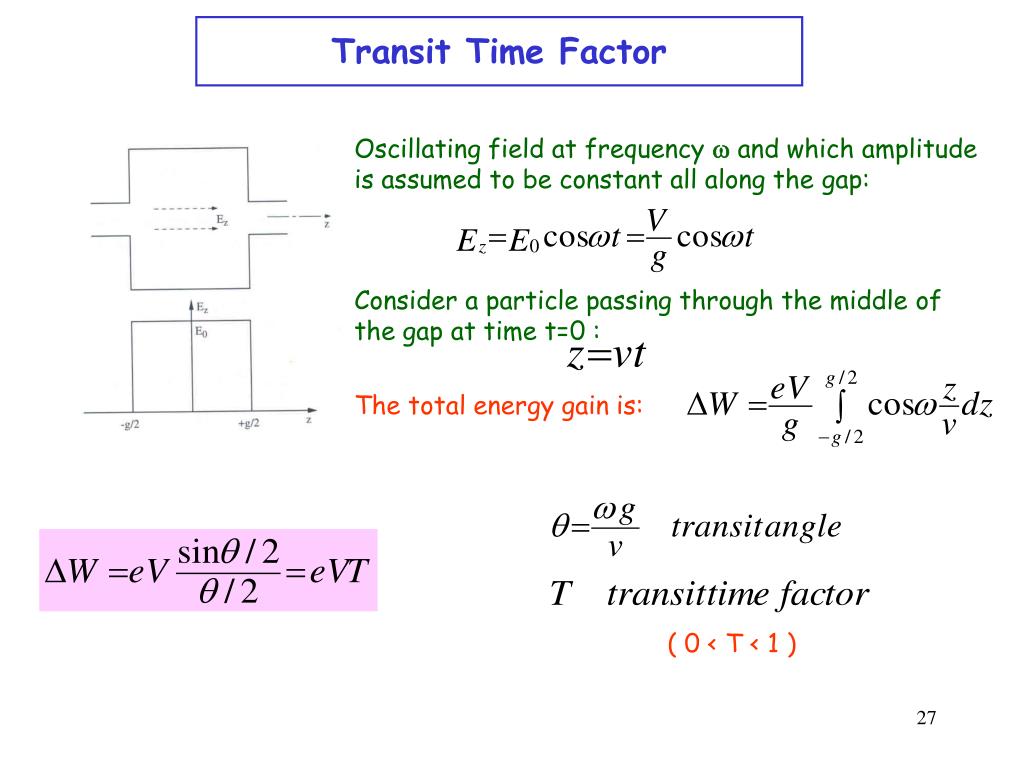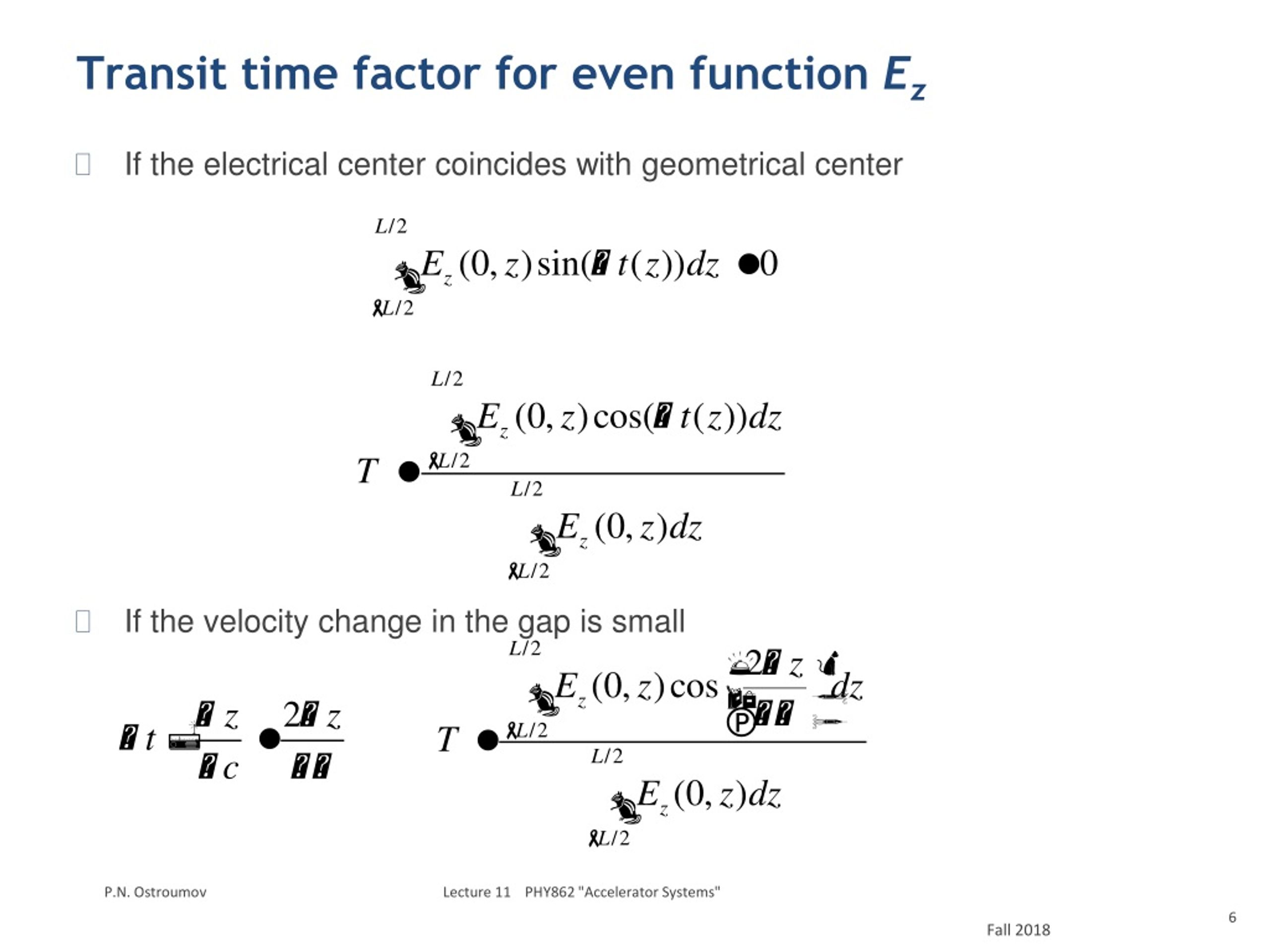Reference




OpenAI's Answer
The transit time factor (TTF) is related to the effective acceleration voltage in RF cavities. It accounts for the variation of the electric field during the particle’s transit through the acceleration gap.
Here are some key points:
-
Definition: The transit time factor is the ratio of the actual acceleration voltage experienced by the particle to the peak voltage in a static field. It accounts for the fact that the particle's speed is not infinite, causing a reduction in effective acceleration.
-
Mathematical Expression: In an ideal scenario (like a pillbox cavity), the TTF can be mathematically represented in terms of integral expressions that consider the time-varying nature of the electric field compared to a static field situation.
-
Effect on Acceleration: If the transit time factor is less than one, it indicates that the particle gains less energy than it would from a static field of the same peak voltage. This is due to the temporal spread of the electric field as the particle crosses the gap.
For more detailed reading, you might find this CERN PDF helpful. It explains the transit time factor and its relationship with accelerating gaps and phase.

Follow Up
Related
What is the significance of the acceleration voltage in particle accelerators?
What is the relationship between electric fields and particle kinetic energy in accelerators?
Are there vocational and technical schools available in Nanshan District?
What were the reasons for the accelerated retirement of the 4000-series cars?